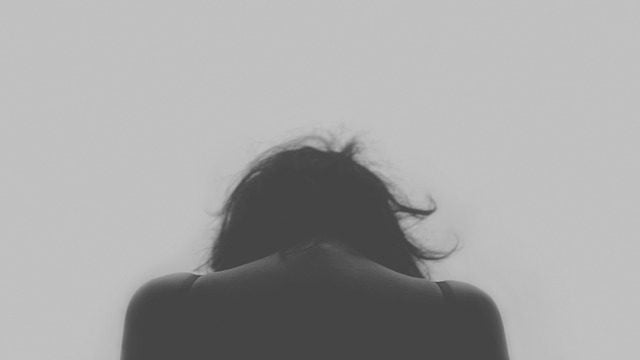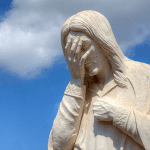
I’ve learned that a second survivor of the Marjory Stoneman Douglas high school shooting has died by suicide this weekend. This latest one was a minor, so they can’t release a a name or any details yet. Suicide is a notoriously contagious thing, and I pray that there won’t be any further victims. May God grant them eternal memory.
David Hogg, one of the Marjory Stoneman Douglas survivors-turned-activists, was on Twitter earlier today, tweeting the number for the National Suicide Prevention Hotline and reminding everyone to engage in self-care. He’s talking about what self-care means for him: gardening, surfing, watching The Office. Others are responding to them that they also practice self-care for mental health: baths, deep breathing, pedicures, exercise, facials. In the face of a monster like suicide from the trauma of a mass shooting, talking about a bath and a facial seems rather rather trivial and hollow.
Self-care is one of those things that Millennials and Generation Z are maligned for. These two generations, I’m told, consist of spoiled brats who are far too fond of relaxation, re-branding it with the precious term “self-care” as if it was anything other than decadence. We also kill ourselves at an alarming rate, though nobody can guess why when we’re supposedly so pampered.
I was born in 1984, making me one of those spoiled brat Millennials. I never attended an actual high school. I was a freshman in a stuffy Catholic correspondence program twenty years ago, when two trench-coated teenagers made their own high school in Colorado a household word. They murdered twelve students and a teacher, wounded 24 others, tried to blow up the school but found their bombs wouldn’t detonate. Then they exchanged fire with the local police before killing themselves.
Columbine High School was not the first school shooting in America, nor would it go on to be the most deadly, but it’s the one we remember. We remember it for its death toll, a record that would be broken before long. We remember it for its brazenness– Harris and Klebold joked and enjoyed themselves as they murdered helpless teenagers cowering in the school library. We remember it for its senselessness– the young men showed ample signs of being dangerous for a solid year before the attacks, but nobody who could have intervened did so. Their parents didn’t even notice the cache of guns and bombs until it was too late.
We remember the series of myths that sprung up around it to try to explain the inexplicable. No, Harris and Klebold weren’t actually Satanists. No, they weren’t neo-Nazis, or at least they didn’t admire Nazis more than any other kind of killer. No, they weren’t goths and they didn’t play Dungeons and Dragons very often– and the students who did never shot anyone. They weren’t really victims of cliquishness and bullying any more than anyone else who went to that school. They weren’t specifically targeting Jocks, nor making martyrs out of Evangelical Christians. Yes, Harris might have been suffering from the side effects of an SSRI antidepressant, but he seems to have been a psychopath even without them. Yes, Klebold was depressed, but millions of depressed teenage boys don’t kill anyone.
My mother had deemed me too young to watch the news, but I watched it anyway. I took it all in. Experts searched for answers and explanations, but it was all so simple and senseless that it defied reason. They were two deranged young men who became obsessed with killing. They found it ridiculously easy to supply themselves with the means to kill many people quickly. And they did so. That was all.
We held funerals and memorial services. We buried the dead and moved on.
Guidance counselors were told to be on the lookout for bullied and introverted children, thus further stigmatizing people who were not to blame. Somewhere along the line, schools installed metal detectors and armed guards.
The shootings kept happening.
I went from correspondence high school to community college at about the time of the 9/11 attacks, then on to a four-year university at the time all those people were left starving in a stadium during Hurricane Katrina. Then I went on to graduate school. I was in the graduate students’ dormitory in Steubenville, putting together a puzzle and watching the common room’s cable television, when I saw news of the Virginia Tech shooting: another deranged young man with ample access to firearms, and so very near the Columbine anniversary.
“Can you imagine?” said the RA, and then, “This is depressing. Let’s watch something else.” She switched to a channel that was showing a chick flick.
We signed our names on a big poster that said “thoughts and prayers,” and sent it to Virginia.
We moved on.
The shootings kept happening.













